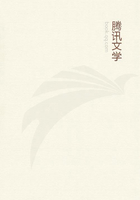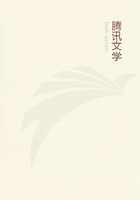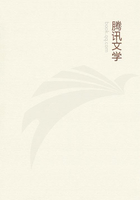INSTINCT
INSTINCT is usually defined as the faculty of acting in such away as to produce certain ends, without foresight of the ends, and without previous education in the performance.That instincts, as thus defined, exist on an enormous scale in the animal kingdom needs no proof.They are the functional correlatives of structure.With the presence of a certain organ goes, one may say, almost always a native aptitude for its use.
"Has the bird a gland for the secretion of oil? She knows instinctively how to press the oil from the gland, and apply it to the feather.Has the rattlesnake the grooved tooth and gland of poison? He knows without instruction how to make both structure and function most effective against his enemies.
Has the silk-worm the function of secreting the fluid silk? At the proper time she winds the cocoon such as she has never seen, as thousands before have done; and thus without instruction, pattern, or experience, forms a safe abode for herself in the period of transformation.Has the hawk talons? She knows by instinct how to wield them effectively against the helpless quarry."
A very common way of talking about these admirably definite tendencies to act is by naming abstractly the purpose they subserve, such as self-preservation, or defense, or care for eggs and young -- and saying the animal has an instinctive fear of death or love of life, or that she has an instinct of self-preservation, or an instinct of maternity and the like.But this represents the animal as obeying abstractions which not once in a million cases is it possible it can have framed.The strict physiological way of interpret- ing the facts leads to far clearer results.The actions we call instinctive all conform to the general reflex type ;
they are called forth by determinate sensory stimuli in contact with the animal's body, or at a distance in his environment.The cat runs after the mouse, runs or shows fight before the dog, avoids falling from walls and trees, shuns fire and water, etc., not because he has any notion either of life or of death, or of self, or of preservation.He has probably attained to no one of these conceptions in such a way as to react definitely upon it.He acts in each case separately, and simply because he cannot help it; being so framed that when that particular running thing called a mouse appears in his field of vision he must pursue; that when that particular barking and obstreperous thing called a dog appear there he must retire, if at a distance, and scratch if clove by; that he must withdraw his feet from water and his face from flame, etc.His nervous system is to a great extent a pre organized bundle of such reactions -- they are as fatal as sneezing, and as exactly correlated to their special excitants as it is to its own.Although the naturalist may, for his own convenience, class these reactions under general heads, he must not forget that in the animal it is a particular sensation or perception or image which calls them forth.
At first this view astounds us by the enormous number of special adjustments it supposes animals to possess ready-made in anticipation of the outer things among which they are to dwell.Can mutual dependence be so intricate and go so far? Is each thing born fitted to particular other things, and to them exclusively, as locks are fitted to their keys? Undoubtedly this must be believed to be so.Each nook and cranny of creation, down to our very skin and entrails, has its living inhabitants, with organs suited to the place, to devour and digest the food it harbors and to meet the dangers it conceals; and the minuteness of adaptation thus shown in the way of structure knows no hounds.Even so are there no bounds to the minuteness of adaptation in the way of conduct which the several inhabitants display.
The older writings on instinct are ineffectual wastes of words, because their authors never came down to this defi- nite and simple point of view, but smothered everything in vague wonder at the clairvoyant and prophetic power of the animals -- so superior to anything in man -- and at the beneficence of God in endowing them with such a gift.But God's beneficence endows them, first of all, with a nervous system; and, turning our attention to this, makes instinct immediately appear neither more nor less wonderful than all the other facts of life.
Every instinct is an impulse.Whether we shall call such impulses as blushing, sneezing, coughing, smiling, or dodging, or keeping time to music, instincts or not, is a mere matter of terminology.The process is the same through-out.In his delightfully fresh and interesting work, Der Thierische Wille, Herr G.H.Schneider subdivides impulses ( Triebe )
into sensation-impulses, perception-impulses, and idea-impulses.To crouch from cold is a sensation-impulse; to turn and follow, if we see people running one way, is a perception-impulse; to cast about for cover, if it begins to blow and rain, is an imagination-impulse.A single complex instinctive action may involve successively the awakening of impulses of all three classes.Thus a hungry lion starts to seek prey by the awakening in him of imagination coupled with desire; he begins to stalk it when, on eye, ear, or nostril, he gets an impression of its presence at a certain distance; he springs upon it, either when the booty takes alarm and sees, or when the distance is sufficiently reduced; he proceeds to tear and devour it the moment he gets a sensation of its contact with his claws and fangs.
Seeking, stalking, springing, and devouring are just so many different kinds of muscular contraction, and neither kind is called forth by the stimulus appropriate to the other.
Schneider says of the hamster, which stores corn in its hole:















